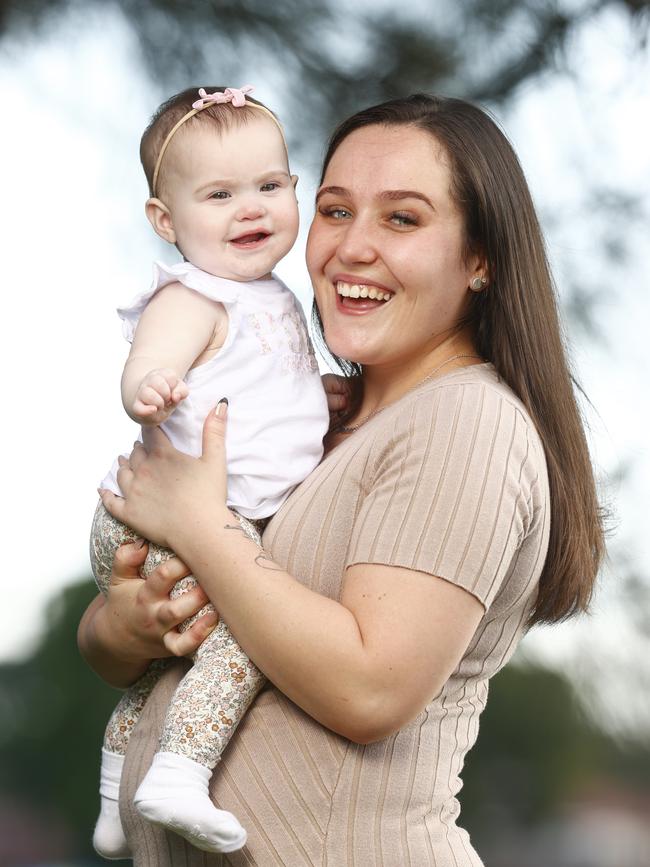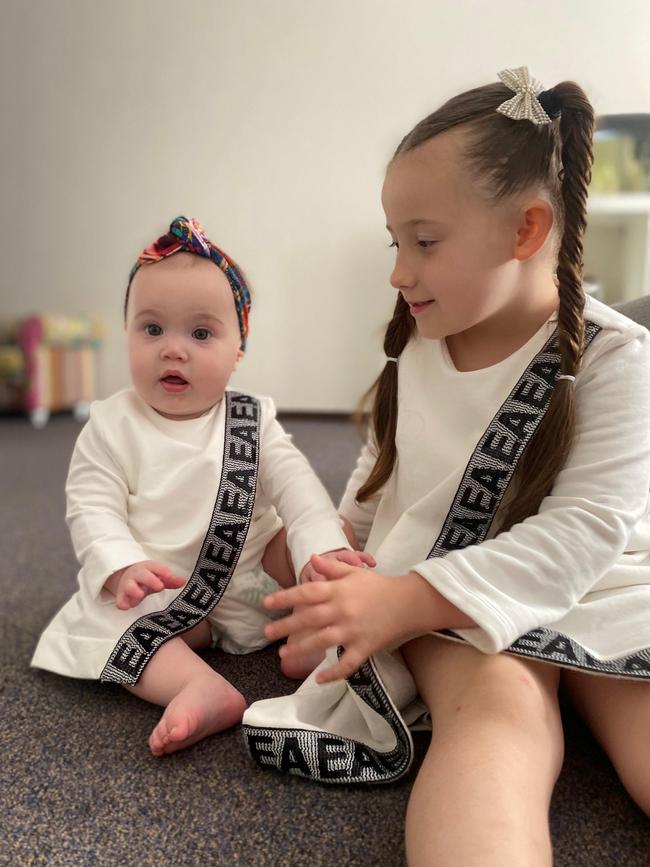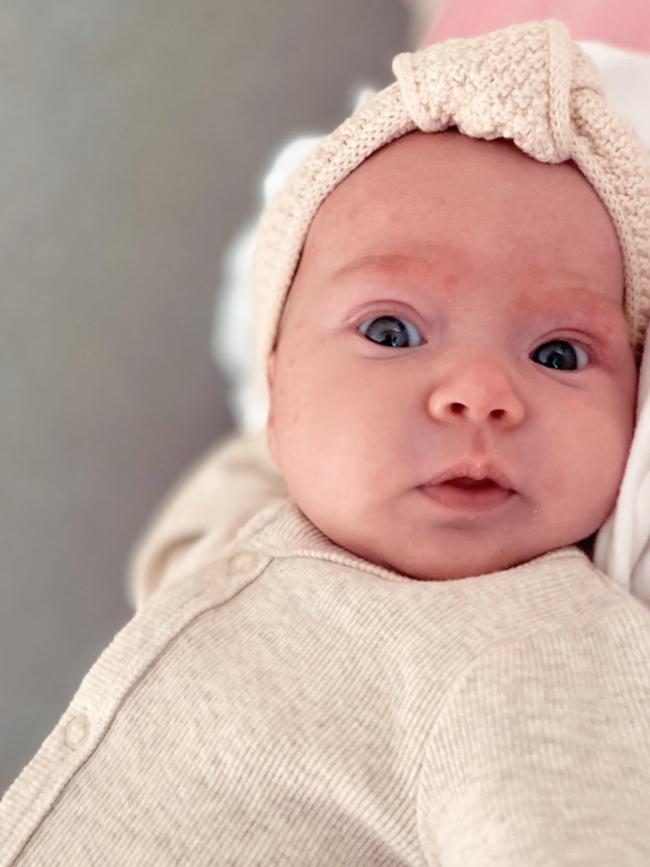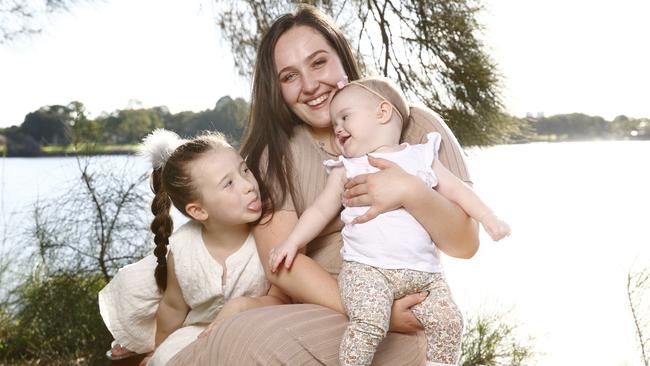Babies taking longer to smile due to Covid masks
An entire generation of babies have been born expressionless for up to six months because they cannot mimic the mouths of smiling adults.
NSW
Don't miss out on the headlines from NSW. Followed categories will be added to My News.
It is taking longer for babies to smile because people around them are wearing Covid masks. An entire generation of babies has been born not smiling for up to six months because they cannot mimic the mouths of adults obscured by Covid-protecting PPE masks.
Child experts seeing a disturbing trend in expressionless newborns are urging parents to interact more with their infants in an effort to speed up their emotional development stunted by seeing mask-wearing hospital and daycare staff since the pandemic struck.
“I had to take my baby Wynter to the GP because she would just stare at me and not once smile in four months,” said mother-of-two Cheyenne Cantali, 24, from Leichhardt, Sydney.
“My eldest daughter Willow cracked a smile in a few weeks, but when Wynter, who is now eight months old, didn’t smile, I got scared, she would just stare at me with stunned eyes – the doctor said it was a common occurrence with babies born during Covid because of masks worn by nurses, staff at day care centres and people in the community.
“She just wasn’t animated like the other children, or her sister; her reaction was slower and her eye movements were not focused.

“She became a little more alert when we left the hospital but then no one could come to the house during lockdown and the midwife came always wearing a mask.
“It took four months to get Wynter to smile, now she’s a gorgeous baby.
“But there was a worrying and scary period where are she’d refuse cuddles and kisses.
“The midwife said she was seeing a lot of unsmiling babies who couldn’t copy anyone’s mouth and was deprived of close family interaction during social distancing.”
Sydney-based child and adolescent psychologist Gissia Castelnoble has seen an anecdotal rise in a delay of children taking up six months to smile.
“It’s anecdotal but we’re hearing more about how long it’s taking babies to smile, some up to six months, – babies are tremendous mimickers and if they don’t see a smile, they can’t copy it.


“It’s a new phenomenon and is likely to affect an entire generation; we need more studies to look into the extent of seriousness of new babies’ socialisation and social development.
“Babies and young children are now socialising in a different way, they’re relying on different senses – listening more to voice tone, gestures and reading eye cues to understand social expressions.
“It’s important for parents to make an extra effort to interact and engage with very young children and use high pitch voices so that the infant can learn to read emotions and feel loved.”
Specialist paediatrician and associate professor in the Discipline of Child and Adolescent Health at the University of Sydney, Nicolas Wood, said: “Babies smiling later is becoming a growing issue.
“They look to mimic mouths at an early stage and if they can’t see mouths it will delay them smiling.
“In hospital environments where staff have to wear masks for patient interaction, it’s difficult to comfort children by smiling.
“Children are scared and more nervous around strangers in masks.”

Babies smiles are initially reflexive and happen within the first month.
Typically they can flash a real, social, smile as a way of showing as happy from between one and three months. By three or four months they will socialise with almost everyone by mirroring facial movements.
Australian Medical Association (NSW) president doctor Danielle McMullen encouraged parents to talk and interact at home with their children instead of watching the television.
“Babble and smile more with your baby, it improves their social development and makes them less nervous around strangers,” she said.
“Babies may not be as smiley in the community because they can’t read people’s faces but at home they should be responding. If they’re not meeting milestones talk to your GP.”





